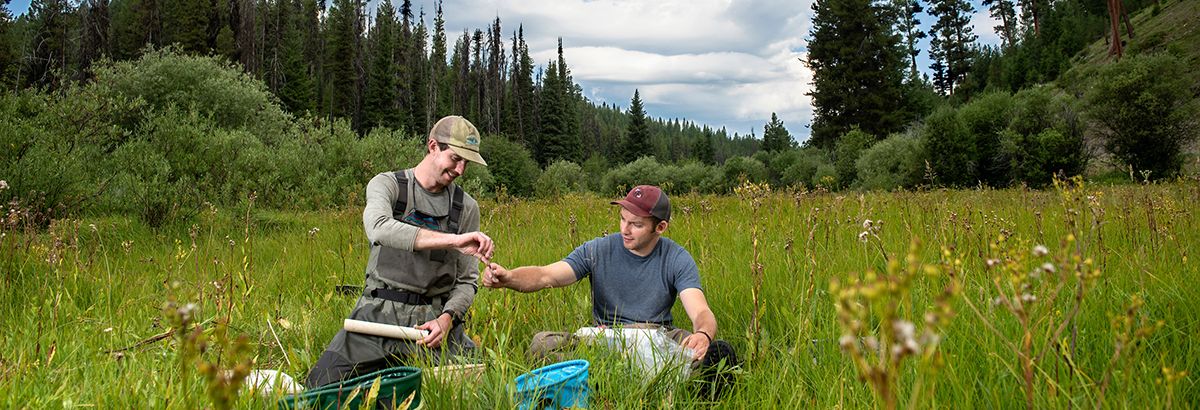Student Spotlight: Rob Green
In this episode of Confluence, hear from Rob Green, a master’s student in 老虎机攻略’s Environmental Studies Program. After getting an undergraduate degree in journalism, Rob worked as a wilderness guide in Central and South America – an experience that sparked his interest in conservation and photography. Hoping to contribute to deeper change in the field of conservation, Rob’s thesis work looks at a holistic approach to understanding human-predator relationships.
Episode Extras
Story Transcript
I actually spent a lot of time working as a back-country guide and a wilderness medic specifically down in Central and South America. After a while, it felt like we were doing something that was basically just like poverty porn. We were showing them, you know, extractive practices that were, that were devastating local ecosystems, etc. Showing how indigenous communities were being impacted by these things. And, you know, a lot of the people that we guided would say, “Wow, this is terrible. This is heartbreaking. This is so sad.” And I'd come back year after year and really not see anything change. And I think after a while, that just kind of wears on you until you start to ask yourself, “What am I really doing here?”
My name is Rob Green and I am a master's candidate in the Environmental Studies program here at the 老虎机攻略.
So, I think I realized that I wanted to see what else I could do to help maybe make some movement on some of these issues or maybe understand them in a little bit deeper way. And so that, that's when I decided to move out here to Montana and get involved in the program here at the university.
I’m really interested in the social dynamics of conservation. In coming to Montana, something that was just really fascinating is human-predator relationships specifically around bears and wolves. I think that there's a possibility that the conversation isn't so much about bears as it is about how are humans treating each other and how are they treating this land and our different views on what that should look like.
And I think there's a lot of good that's happening in that community with regards to education, with regards to collaboration, with regards to cooperation. And so being able to tell a story that champions those things instead of always telling this nasty story about conflict, about it’s people versus the bears, it's the ranchers versus the bears, it’s the environmentalists versus the ranchers. I have to believe that whatever tension that there is right now between all these different groups of people, there is a way to get people closer together, there is a way for us to understand more fully, what are we talking about when we talk about a word like conservation.
And so, then what I'm going to be doing is setting up camera traps to catch bears as they're coming through, particularly urban settings. I think there's some opportunity for some really powerful imagery not in a way to scare people, but to say that there is a coexistence here that we need to talk about. At the end of the day, I'm a storyteller. I'm not a landowner. I'm not a politician. I don't make the rules, but if we can start to tell stories that honor each other, that we can use to build trust in one another, then maybe there's a little bit clearer path forward. It's not going to say that it's going to be perfect. It's not going to say it's going to be pretty, but I think there's an opportunity for some movement here that is important and necessary.
Dan Spencer is my advisor. You know, I come to him in the Environmental Studies Program and say, “Hey Dan, I'm an Environmental Studies Program, but I want to take pictures.” And so, you know, there's Dan then who says, “Okay, well, you know, let's figure this out because there's a core curriculum -- we got to work with this core curriculum. But let's see how we can, we can fold this in.” And, you know, through his mentorship and through his advising, I feel like I've been able to really honor the core classes for the Environmental Studies Master's Program. While at the same time, Dan has helped me reach out into other departments and really helped me choose some beneficial courses that I feel like have really added to my education here, to my network, and to the work that I'm going to be doing, not just now, but honestly, decades down the road. I mean, I feel so set in a lot of the stuff that I'm doing now because I can feel that those relationships are only going to continue to strengthen over time, which is a wonderful feeling for a master's program.
